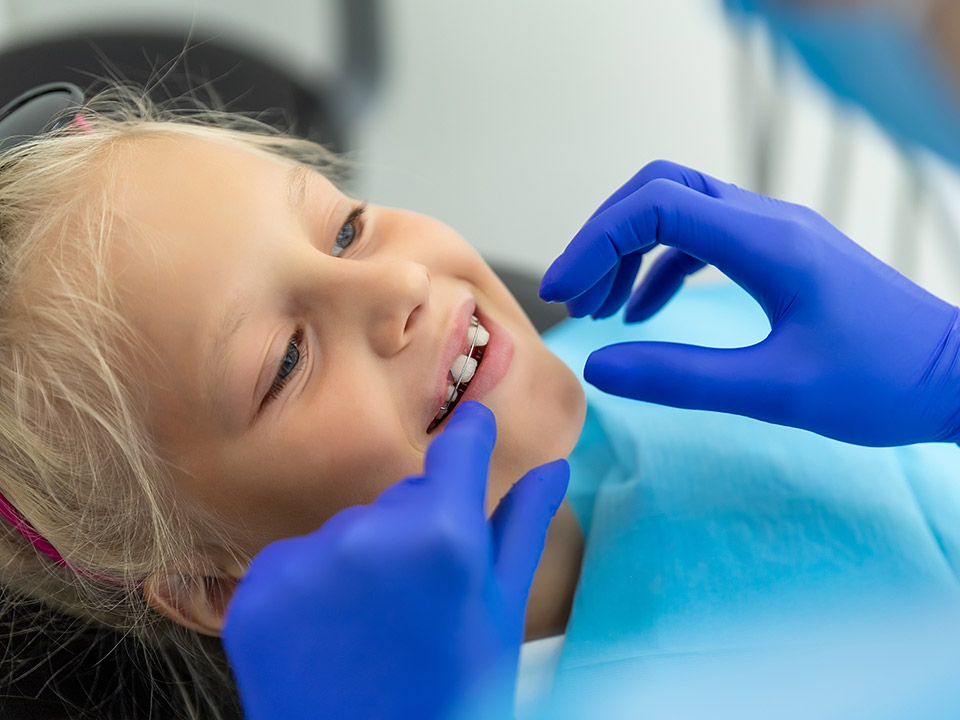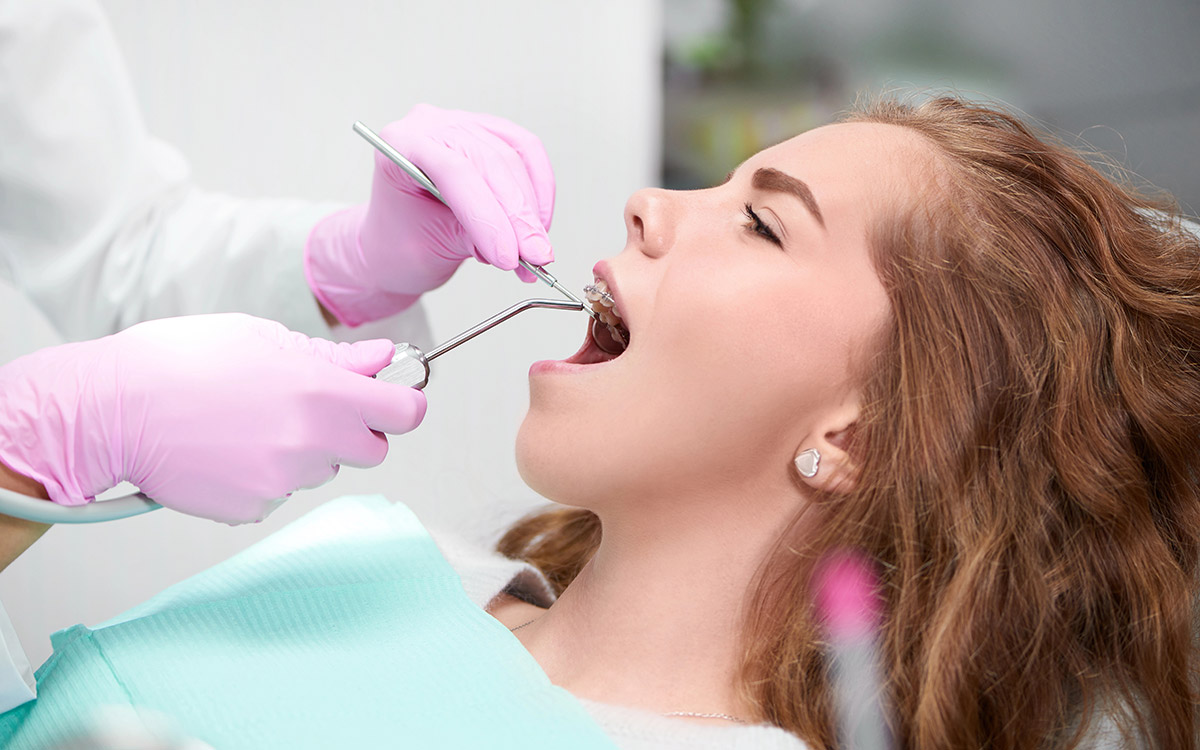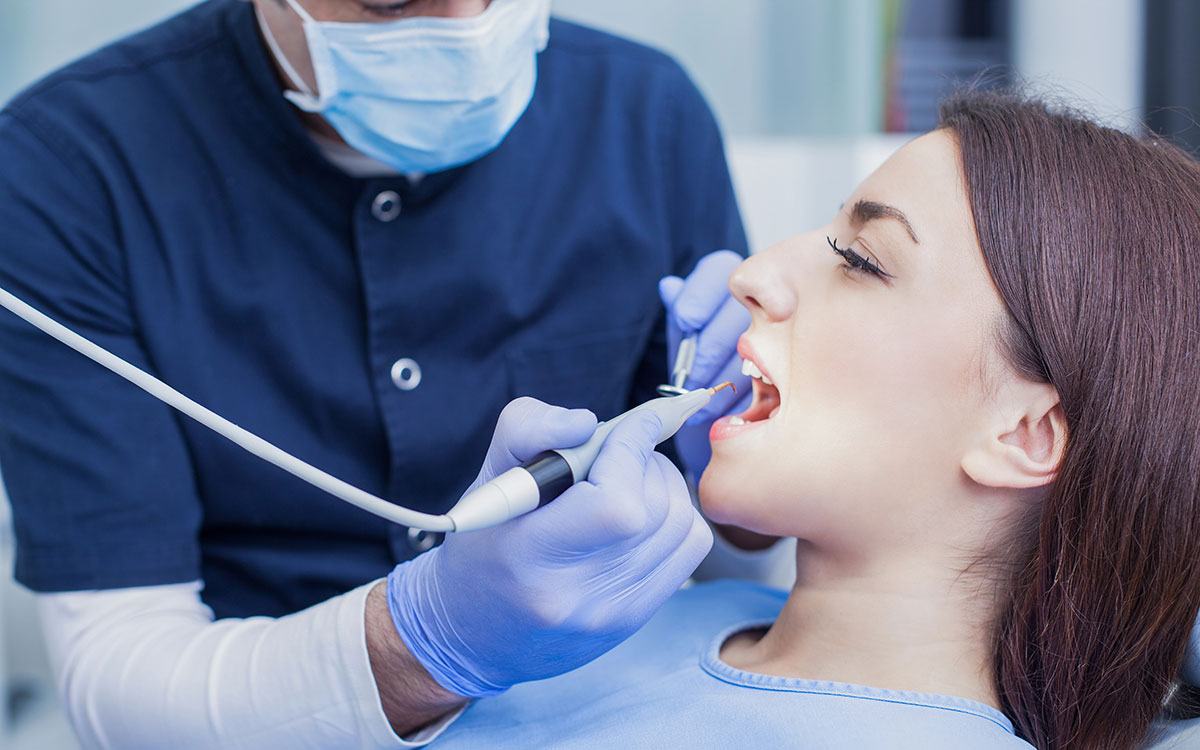When your practitioner recommends braces, you may immediately think they are to fill in the gaps between the teeth and fix crooked-facing teeth. You are correct because straightening your teeth is the primary function of braces. But you may not know that your orthodontist is also concerned about your bite, which the braces will correct.
The bite is the way the upper and lower teeth come together. A correct bite sees your upper teeth fitting slightly over the lower teeth. Similarly, the points of the molars should fit into the groves of the opposite molar. Your jaw should line up perfectly.
Malocclusion or a bad bite occurs when the teeth meet improperly or do not meet. The upper teeth could cover the lower ones or vice versa. Additionally, your molars may fail to interlock, or your incisors leave a visible gap.
Bad bites are often cosmetic issues but may also cause discomfort. There are several bad bites, but the most common are underbite and overbite. Many people have these conditions, and they likely develop during childhood. But how did you get it?
The information below seeks to outline the primary causes of underbites and overbites. Guardians can use this information to help their children avoid braces. In addition, if you have an overbite or underbite, you will gain an understanding of your condition, helping you decide if you want a solution.
What Causes Overbite?
The overbite is where your upper teeth extend more forward than the lower teeth. It makes them overlap, covering the lower teeth when you bring your Pearlies together. It is a common condition globally and can occur due to multiple factors.
Thumb sucking/ Pacifiers
If you are contemplating letting your child keep their pacifier or thumb-sucking habit beyond the age of five, think again because they could end up with an overbite. When a child maintains the sucking habit of a pacifier or thumb, it forces the teeth into an angle leading to an overbite, where the front teeth protrude. It is often called ‘buck teeth.’
There is a good chance that this sucking habit will affect the permanent teeth, especially if your child keeps at it past six.
While children are bound to keep sucking their thumbs and pacifiers because it is a comfort mechanism to keep them happy and feel secure, you must take action to discourage both. Ask your pediatric dentist for tips on helping your child break the habit.
Genetics
Sadly, sometimes developing an overbite is entirely out of your control and is instead the result of genetics. If you have an overbite but did not maintain a thumb-sucking habit, look at your parents, siblings, and other relatives. Chances are, they, too, have overbites.
Genetics may cause your lower jaw to under-develop relative to the upper jaw. It creates lower teeth that are further back than the upper ones. Sometimes, these genetic features are passed down within the family, which is out of your control.
Spacing or Crowding
And finally, having too spaced or crowded teeth can cause an overbite. When some of your upper teeth are missing or have gaps, it forces them into weird positions to make up for speech and eating. This can lead to misalignment where the upper teeth protrude forward and over your bottom row.
Similarly, some people have overcrowded upper teeth. It often happens when the molars come in. When the teeth overcrowd, they push to fit into the row, and this can make them protrude forward, covering the lower teeth.
For this and other reasons, practitioners recommend wisdom teeth removal in some adults since they overcrowd and cause other dental issues.
Remember that an overbite is primarily a cosmetic issue. However, some people may face discomfort in chewing and speech challenges. You could also develop pain in your jaw after some time. Ensure you speak to your orthodontist about fixing an overbite for these reasons.
What Causes Underbites?
The underbite is when your lower teeth protrude outward and farther than the upper teeth, covering them. It is less common than the overbite and poses problems like difficulty eating, speech challenges, and pain due to misalignment. The primary causes of an underbite include:
Genetics
Unfortunately, your genetics can be responsible for an underbite. You are more likely to inherit the condition if even one other person in your family has it since genetics determine your jaw, tooth size, and shape.
You could be born with an underdeveloped upper jaw compared to your lower jaw, causing the lower teeth to protrude and cover the upper teeth. Your teeth may also grow abnormally or too close together. These factors often lead to an underbite. And unfortunately, you cannot stop your child from developing an underbite from genetics.
Tumors
Jawbone tumors also have the unfortunate result of an overbite. When you develop a tumor on your jawbone, the jaws may protrude, causing an underbite. And like the previous cause, you could have a normal bite before the tumor alters your jawbone.
If you notice subtle changes in your bite, you should seek help from your orthodontist to screen for tumors. Quick diagnosis improves the chances of treatment and recovery, so ensure you get screening if your normally perfect bite is askew. You soul monitor your smile regularly for signs.
Injury
Severe injuries to the jaw may cause permanent damage, such as an overbite. When you break your jaw, you can visit your practitioner, and they will be able to reattach it. But surgical realignment does not always result in properly-aligning jaws, especially if you have extensive damage. Therefore, you could get an underbite after surgical realignment if you had a normal bite.
Juvenile habits
And lastly, come childhood habits like thumb-sucking, long-term use of a pacifier, feeding on a bottle for too long, and pushing on the teeth using a tongue can cause an underbite. These actions put pressure on the teeth and force them into misalignment. Luckily, these are habits you can discourage and prevent the underbite.
See An Orthodontist Correct Bite Problems
If underbites or overbites cause you eating, speech, or even cosmetic challenges, you can visit an orthodontist to help you correct the bite.







